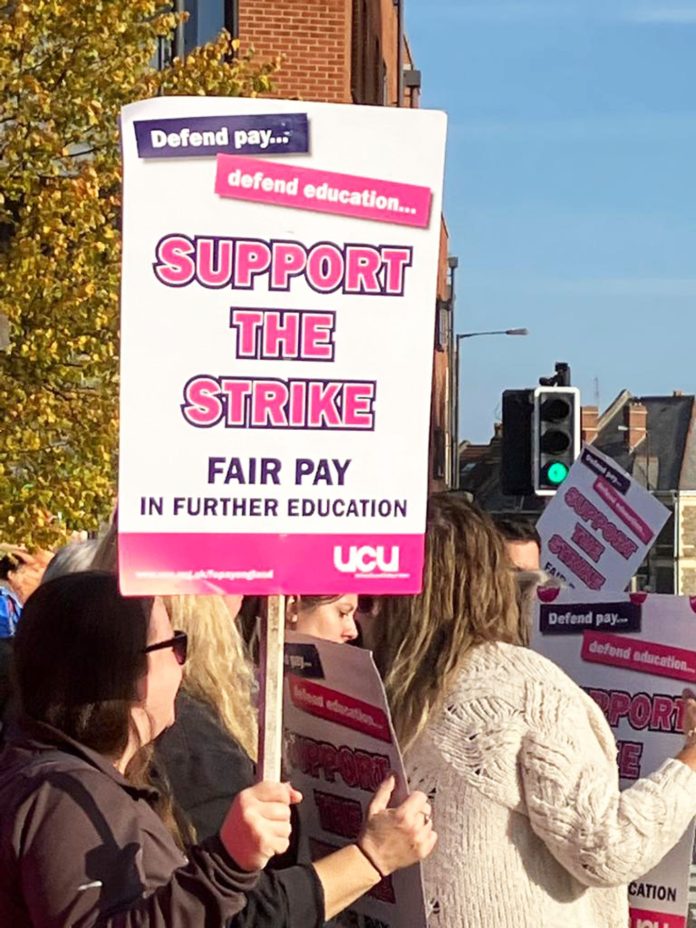Socialist Party members in UCU
On Saturday 13 April, delegates from University and College Union (UCU) further education branches in England joined an online special conference, to determine whether or not to back the strategy of the Further Education Committee (FEC). The strategy included plans to build for an aggregated ballot this term to win nationally binding pay bargaining, with a plan to take strike action in September. As we reported in our article prior to the conference (‘UCU special FE conference: Members can win a national ballot’), the conference was called by branches that had been mobilised by the right wing of the FEC to overturn the strategy.
Delegates report that the conference voted against moving to an aggregated national ballot this year, and endorsed an alternative strategy developed by UCU HQ. However, the conference backed motions for a national campaign for binding pay bargaining, and for the continuation of the strategy of coordinating branches taking disaggregated action.
Now the union leadership must seek to mobilise the maximum turnout of branches as part of a nationally coordinated campaign around the union’s 2024-25 pay demands for a 10% pay rise, action on workloads, and national pay bargaining.
At the conference, delegates faced a choice: the ‘Levelling up: no one left behind’ strategy of the FEC or the ‘New deal’ strategy of HQ, reported to rule out an aggregated ballot in the next two years so that the union could instead “build and articulate a new strategy”.
The left at the conference argued that a mass campaign ahead of the general election would “firm up Labour’s support for FE”. In contrast, the union’s head of FE argued that the union could “influence” the Labour manifesto without taking action.
The Socialist Party backed moves to a national, aggregated ballot this year. We have confidence that our members can win when given a serious, fighting lead. Given Starmer’s commitment to Tory spending plans and “tough choices”, just going to Labour with a begging bowl will achieve nothing for FE staff. We agree we can put maximum pressure on Starmer by showing readiness to fight industrially, and, we also argue, by backing political candidates who support our members.
However, we also warned that the campaign needed to be properly prepared for and built. Though the FEC ‘Levelling up’ motion included plans for branch briefings and a ‘Get the vote out’ campaign, leading members of the FEC could have better prepared the membership ahead of February’s FEC.
Building support for the strategy from below would have guarded against the subsequent attack by the ring wing, who were successful at encouraging and exploiting members’ worries.
Those opposed to the ‘Levelling up’ strategy sent emails out to all branches, warning the action was too much, too soon, had been imposed anti-democratically, ignored legal advice, and had “no exit strategy”. For many branch reps, this was the first they had heard about the campaign, which allowed the right wing’s “concerns” to stick.
The online nature of the conference also favoured the right. Coming together in-person builds reps’ confidence that they are not fighting alone, and allows for debate and discussion between delegates.
This vote does not mean that the potential for action has gone, however. With a vigorous lead from the top and at all levels in the union, members’ confidence can grow. Unified action across the sector will put maximum pressure on employers and the government to agree to the 2024-25 pay claim demands. A national-level campaign for maximum turnout of branches is needed, including support for branches and campaign materials that put the case for coordinated action.
UCU congress in May is another opportunity to debate a fighting strategy.







